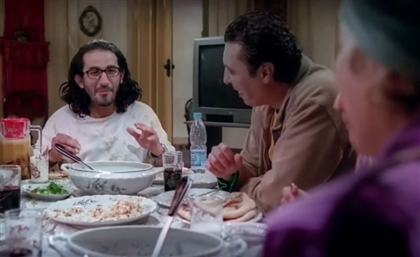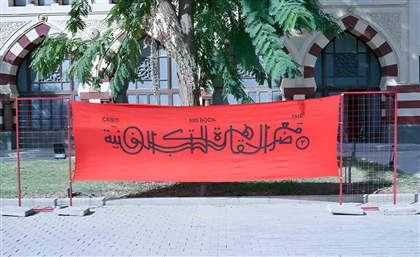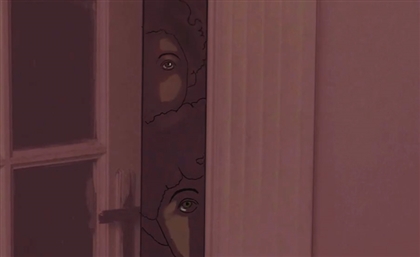Why Do We Gasp at Molokhia? Not Sure, But Here Are a Few Theories
From whoopsie-daisies to some questionable historical tales, we’re tracing the potential origins of our favorite gasp.
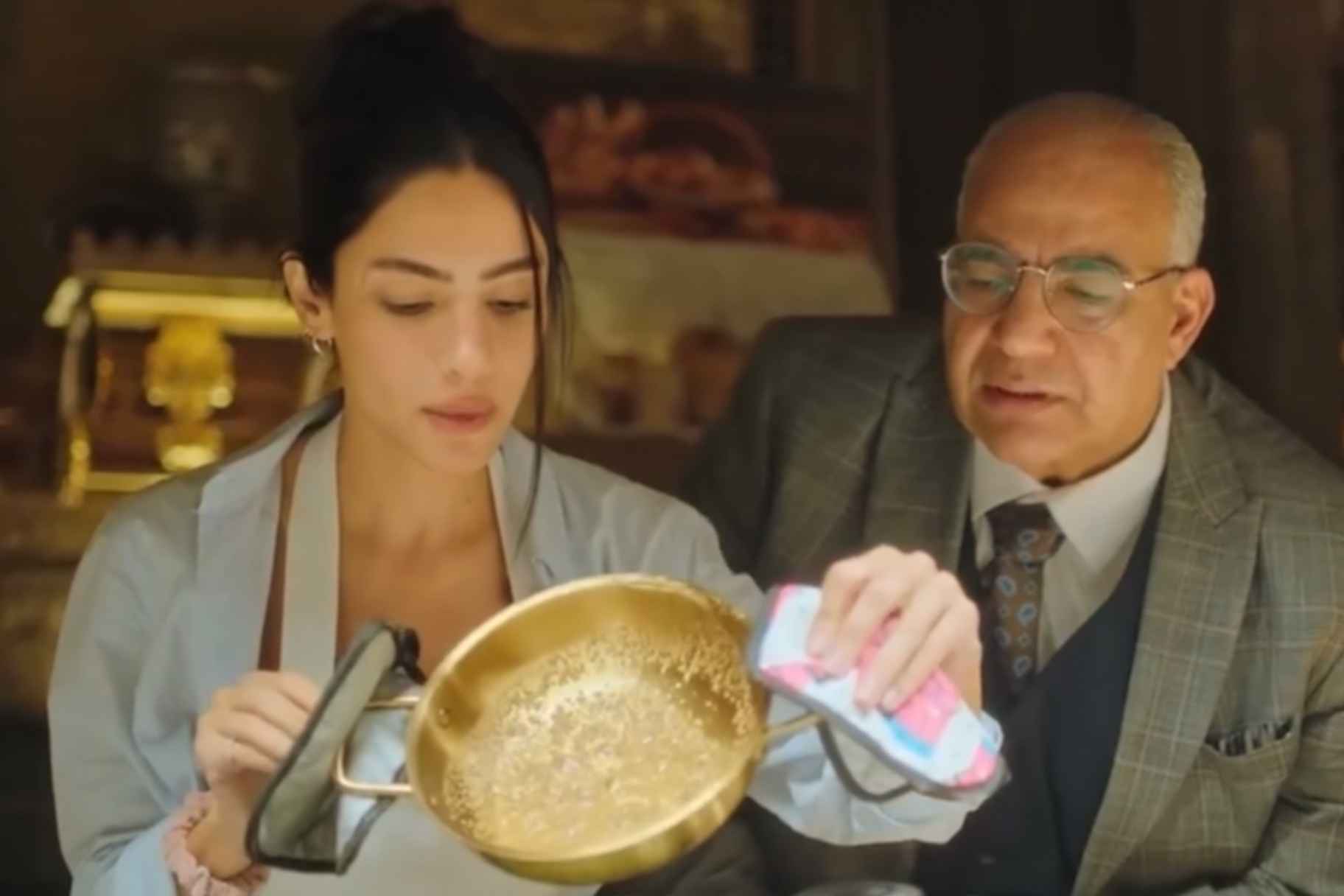
When you grow up in an Egyptian household, you’re likely to develop quite a few core memories at a very young age, and perhaps chief among them is hearing your mother shriek from the kitchen, followed by a high-pitched splash and the almost overwhelming billowing of steam. “Yup, that’s it. Off to the orphanage I go,” was probably the immediate thought that came to mind. After all, could there be a rational explanation for why someone would willingly scream at a pot in the kitchen?
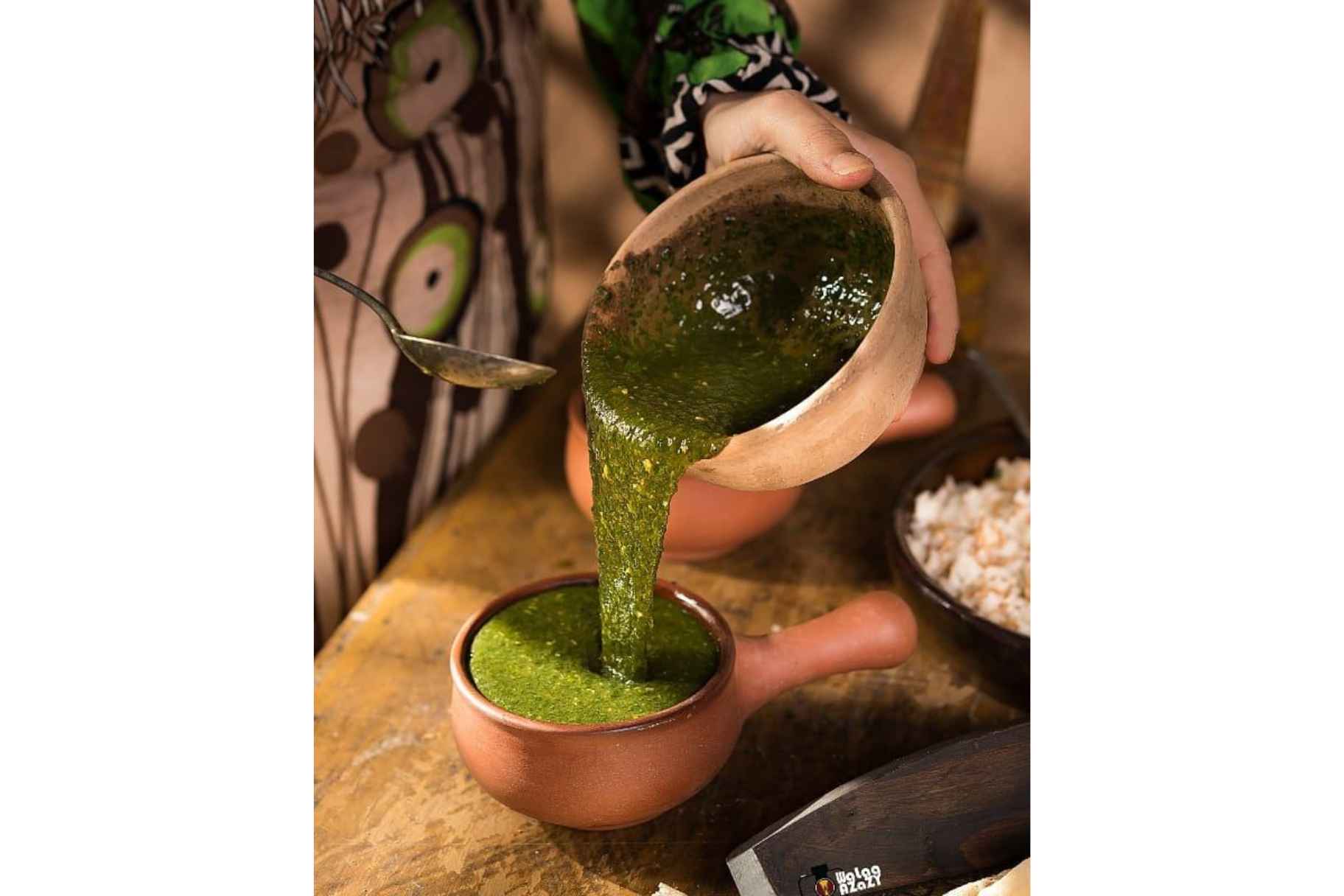
Yet a quick run to the kitchen would prove that all is well. “Why were you screaming?” we’d ask our mothers, but the answer was never quite clear, often falling within the vague explanation of, “Well, that’s just what we do when it comes to molokhia.” The fact is then taken in, accepted, and followed blindly. After all, the molokhia ends up tasting heavenly, so perhaps the secret really is in the gasp. But why? How did that come to be? Given that the dish originated in Ancient Egypt, the secret may have been lost to time, but Egyptians are natural-born storytellers—which means nothing can stop us from cookin’ up a proper theory.
From whoopsie-daisies to some questionable historical tales, we’re tracing the potential origins of our favorite garlicky-gasps.
A Royal Mistake
Our first theory hinges on another, related theory, which is that Molokhia actually is ‘Molokia’, which translates to royal. And what better way to honour a royal dish than with a royal tale?
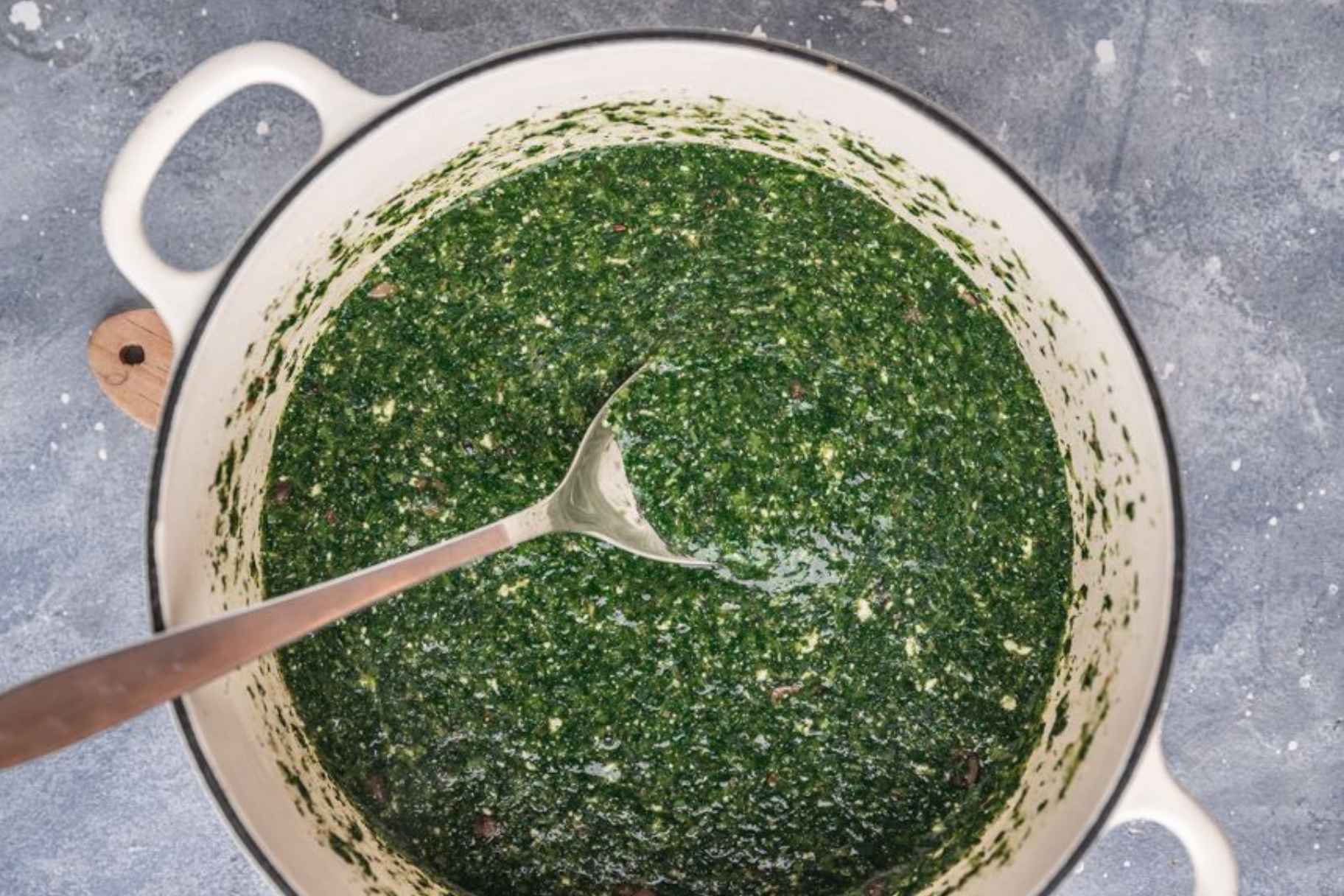
In an unknown era and epoch in Egypt’s royal history, there’s a chef in the royal kitchen, feverishly preparing the king’s favourite dish—molokhia. Now, this wasn’t just any dish; it was a matter of life or death, because in this royal court, the king’s appetite wasn’t something to be trifled with. Legend has it, this particular king wasn’t exactly known for his patience. When he was hungry, he wanted food—and he wanted it immediately. If the meal wasn’t served up fast enough, well, let’s just say the chef might be joining the ranks of those who’d mysteriously vanished from history.
As the chef was about to add the ta’aleyya to the molokhia, a guard burst in, shouting that the king’s hunger was imminent—and that the food had better be on his table within seconds. The chef, startled and probably sweating more than a pharaoh in the desert, gasped in fear. But somehow, despite the panic, he finished the dish in record time and rushed it to the king. The king, eager to taste his favourite meal, took a bite and—surprisingly—was absolutely thrilled with the flavour. So thrilled, in fact, that he rewarded the chef with a royal gesture of approval.
And from that moment on, the legend spread that the gasp, born of pure kitchen terror, was the secret ingredient that made molokhia taste so good.
A Friendly Warning
In many Egyptian countryside homes, kitchens are open spaces—often providing warmth and heat for the land’s feathery and furry friends. In ancient times, cooking over a wood fire was the only option, so cooks would light a fire with a pile of wood and place their cooking pots on top. But here’s where things get interesting—the Shah'aa wasn’t just a reflex; it was actually a strategic move. As the cook finished preparing the ta’aleyya to add to the molokhia, a gasp would escape. But this wasn’t just any gasp. It was a signal—a warning to the birds and animals in the kitchen to step back, allowing the pot to be placed safely on the ground without injuring the creatures.
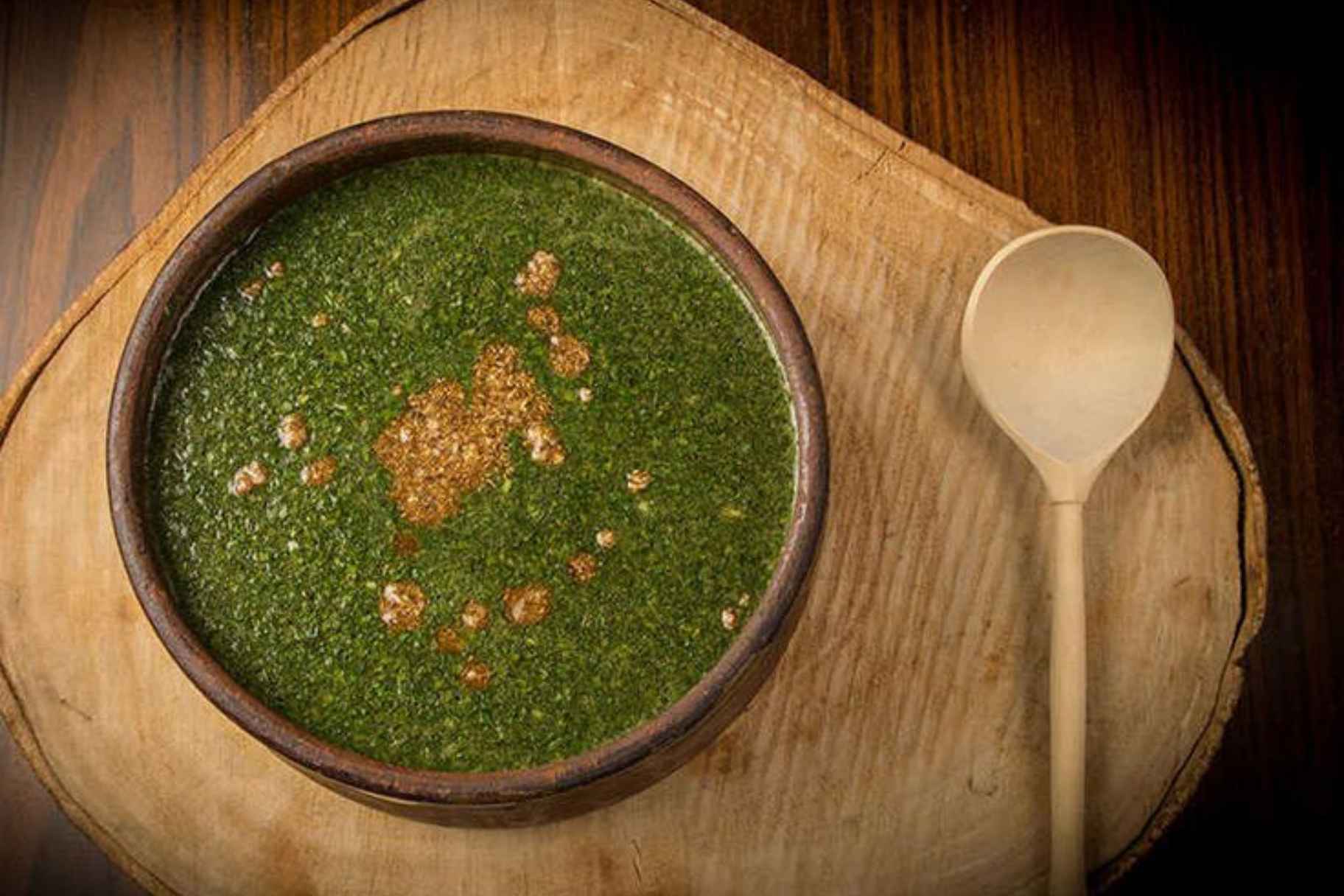
And, of course, once the molokhia was ready, the gasp became an integral part of the process, adding a little extra spice to the legend.
A Close Call
Oftentimes, the greatest eff-ups can lead to our greatest wins. And for a certain unnamed woman, that was definitely the case.
This story suggests that the origin of the 'Shah'aa' traces back to one singular woman's 'whoopsie daisy' in the kitchen. One day, she was preparing her green molokhia, carefully handling the pan filled with ta’aleyya as she moved it from one place to another. But then disaster struck: the pan wobbled in her hand and tilted dangerously towards her chest. In a split second, she imagined the hot ta’aleyya spilling onto her, and let out a loud gasp—half in fear, half in desperation to save both herself and the molokhia from catastrophe.
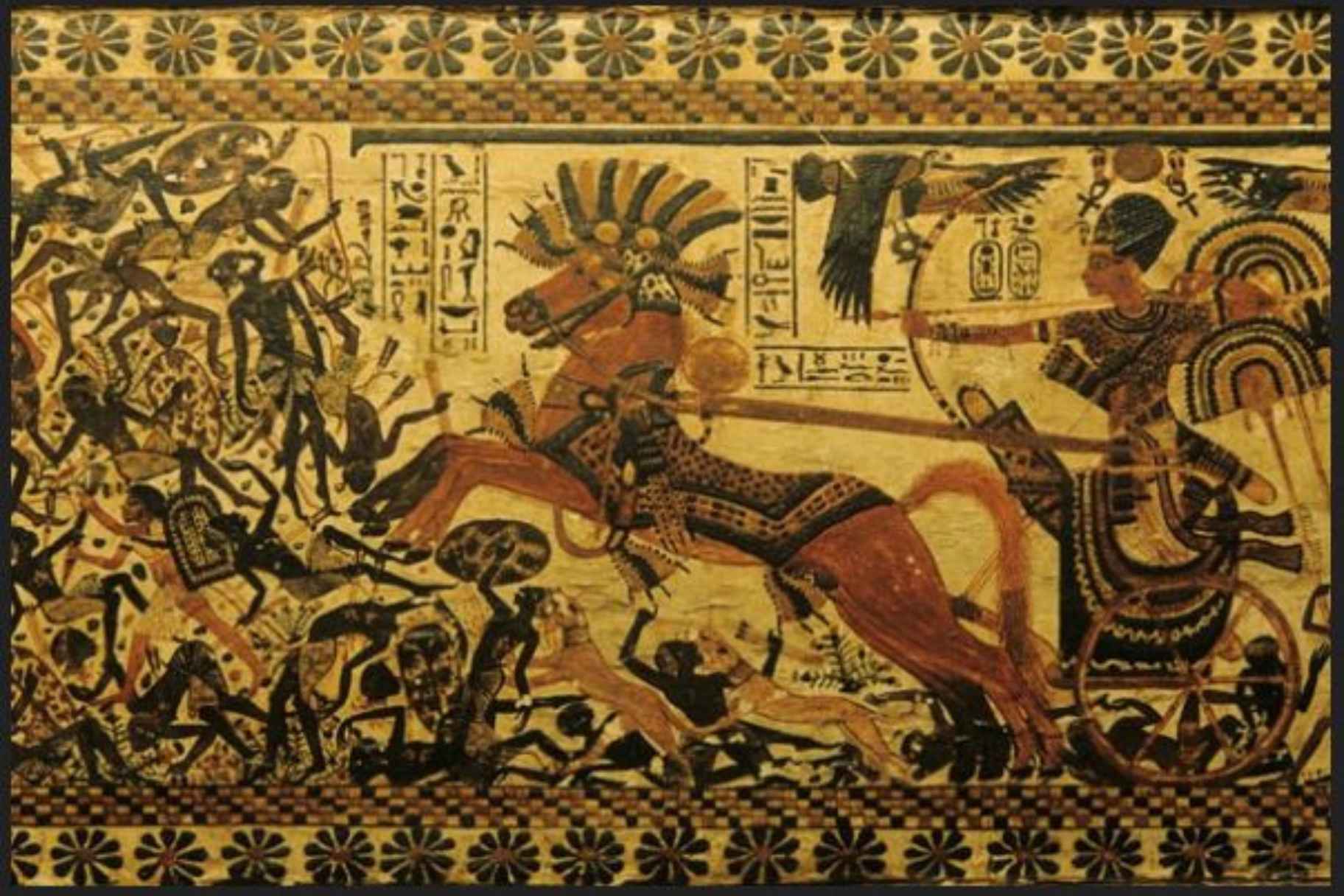
Once the smoke cleared, she took a bite of the molokhia and was completely stunned. It tasted amazing—heavenly, in fact. The gasp, she realised, had somehow made the dish taste even better. From that day on, the gasp became part of the magic of molokhia, an unspoken rule that the dish simply wouldn’t be the same without it.
An Invader’s Unexpected Gift
The Hyksos were c...culprits of many crimes. That much is irrefutable. Yet their most hilarious crime was ‘forcing’ Egyptians to eat Molokhia. While it may seem ridiculous, they truly believed they were torturing our forebears. The best part? Our ancestors went along with it. In Ancient Egypt, Molokhia leaves were once thought to be poisonous; so what better way to force Egyptians into submission than by making them ingest poison? Force-fed Molokhia, Egyptians quickly realised that this once-thought-to-be-poisonous plant was actually kind of slaying. Yet the Hyksos couldn’t have known that, and so victims of this ‘torture’ would put on quite a show, accompanied by a series of gasps meant to evoke pain. A gasp that would later become one with the dish. Thank you, Hyksos?
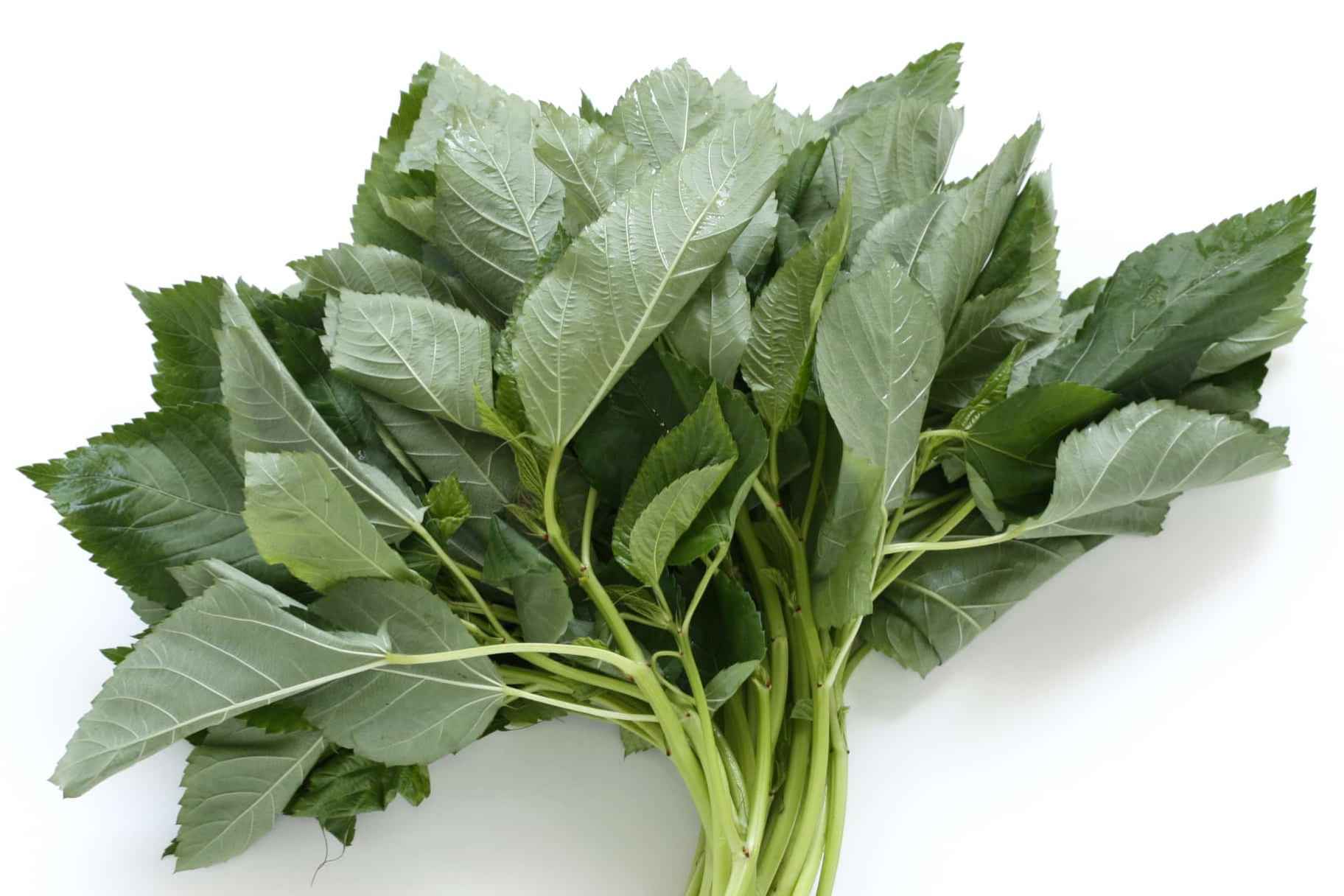
While the stories differ, with the points of origin spanning epochs, the ‘shah’a’ of the Molokhia remains a secret no one can decipher, but it doesn’t hurt to try.
- Previous Article Syrian Cassette Archives Hosts Charity Event ft. Lynn Adib & More
- Next Article Six Unexpected Natural Wonders to Explore in Egypt
Trending This Week
-
Dec 12, 2025









